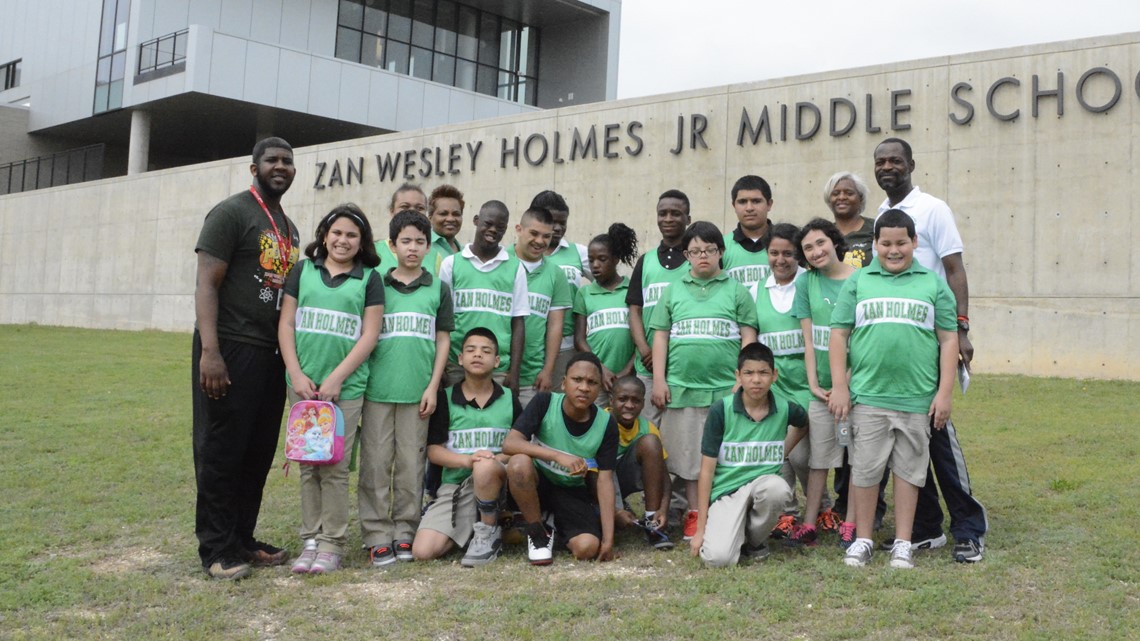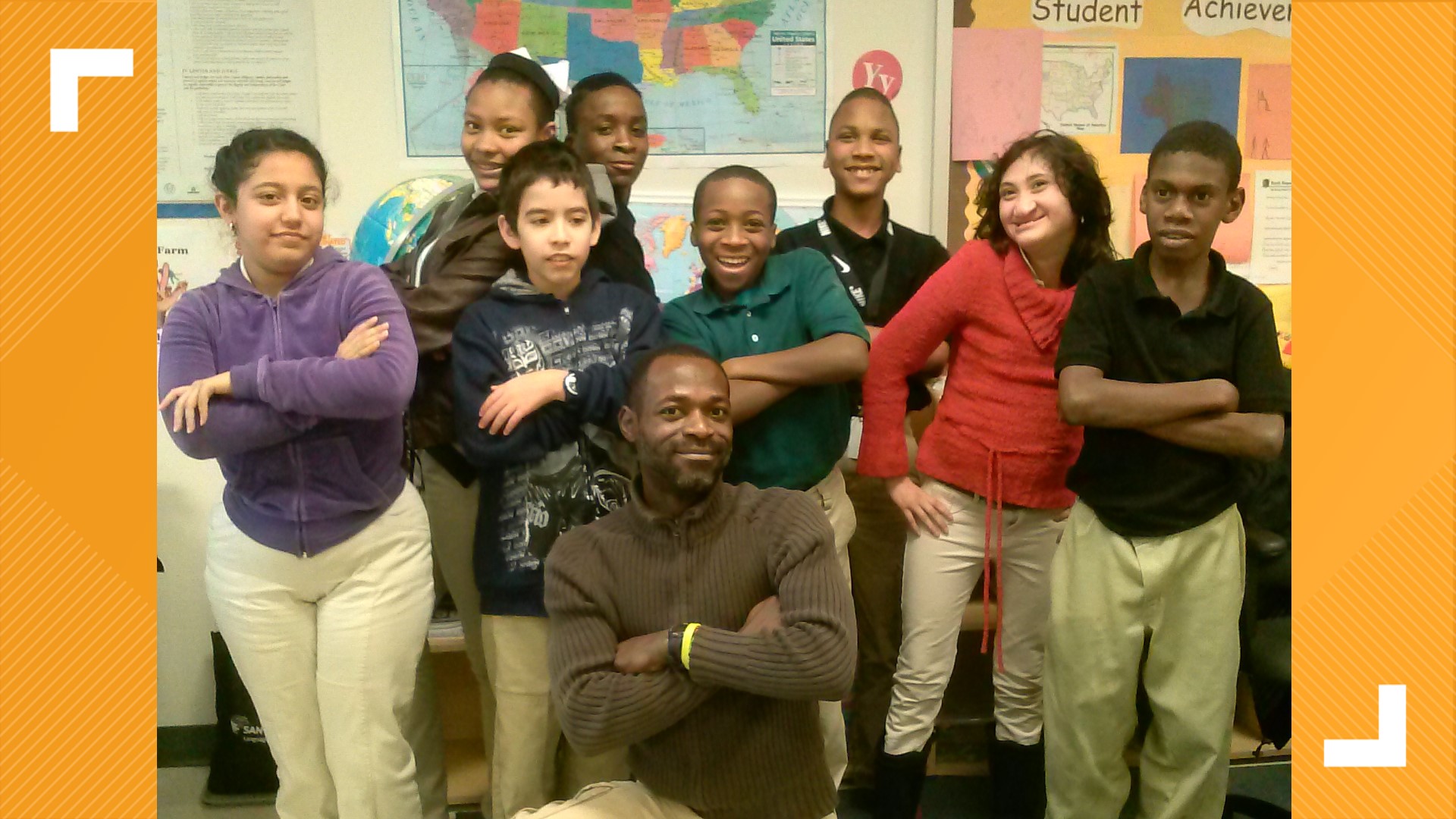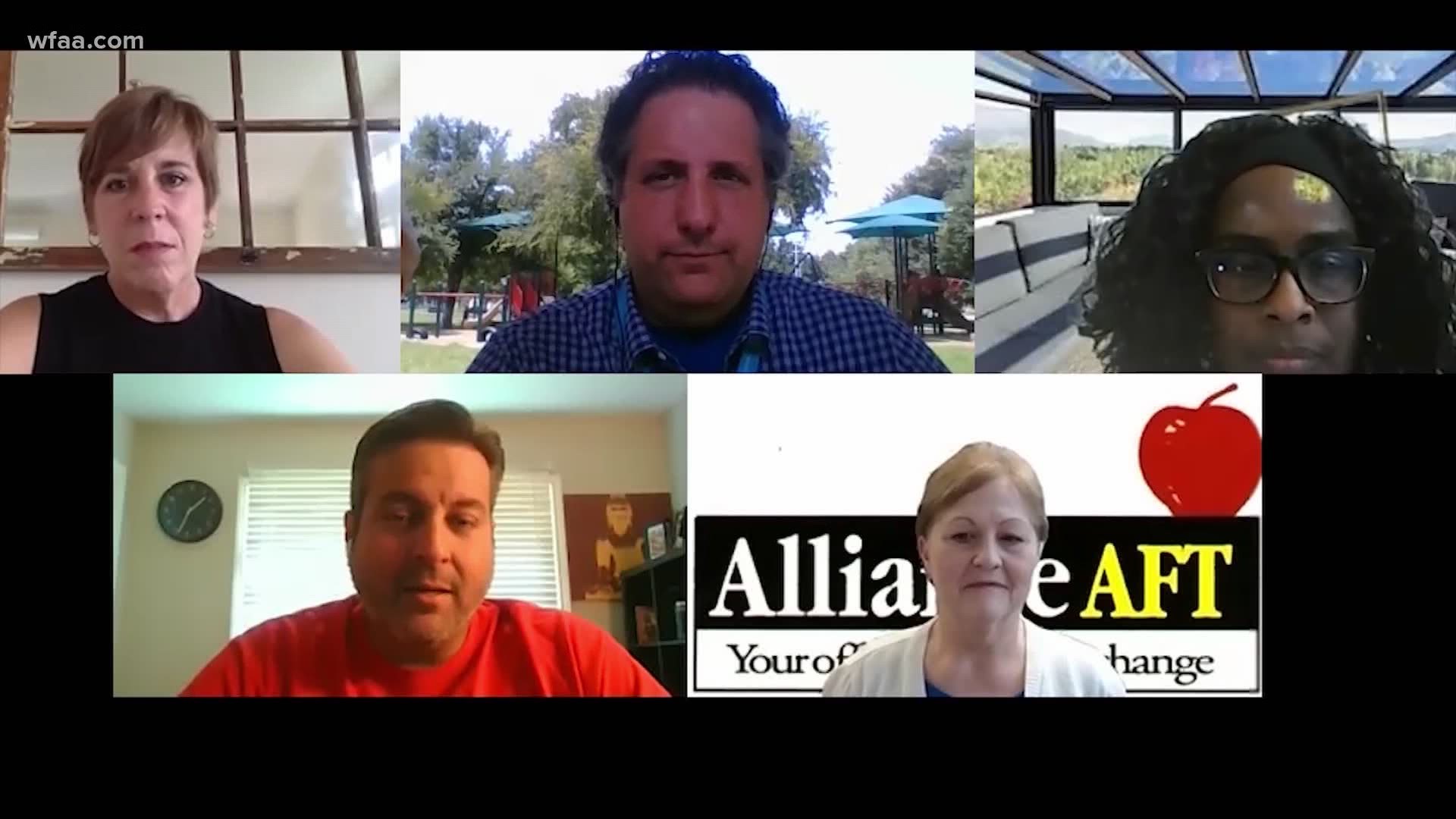DALLAS, Texas — Teachers along with school administrators have been busy combing through the Texas Education Agency's newest health and safety guidelines regarding COVID-19, but they don't specifically address some of the most vulnerable students within districts across the state.
The words "special needs instruction" or "special education" are found nowhere in the TEA's nine pages of new guidelines.
A startling omission, according to Dallas' Alliance-AFT chapter, which represents roughly 6,000 teachers within Dallas Independent School District.
However, Chapter President Rena Honea was glad to actually see some plan released by the state.
A release of the guidelines was delayed as Texas' COVID-19 situation got worse.
The highlights: masks are required for students over 10 at school (in counties with more than 20 active reported cases), social distancing is strongly encouraged in classrooms, and staff must self-screen for COVID-19 symptoms.
But Honea pointed out that there are glaring holes yet to be addressed, including how special education classes will be handled.
"It's really frightening to think that these students who greatly need our help weren't included in the plan," Honea said. "Especially those who are medically fragile."
Alister Brown echoed Honea's concern.


Brown has been a special education teacher within Dallas ISD for 16 years.
He currently teaches at Zan Wesley Holmes Middle School. Brown said it's going to be hard to do his job within six feet.
"There are some services where we really have to be hands-on," Brown said.
"So we need more guidance to help us complete our job."
Honea is still awaiting for DISD to reveal its health and safety guidelines.
RELATED: Dallas ISD teachers getting anxious as plans to resume schooling in 45 days still not released
Now that the state has released something official, it's likely that the district will go into more detail about classrooms like Brown's.
Honea said it's imperative that teachers like Brown are given any direction to work with.
"Many special education students across the state have feeding tubes, trachea tubes that have to be taken care of. Many of the students have toileting needs that have to be done. Those cannot be done six feet away," Honea said.
"I think it shows a lack of planning on the state's part to not include them."
Brown said that he will likely have to get creative to keep students distanced and safe.
However, he said it's a challenge that his passion has prepared him for.
"We want them to be in the classroom," Brown said. "But we want it to be safe as well. Our students are more vulnerable than regular students with some of the conditions they have."


